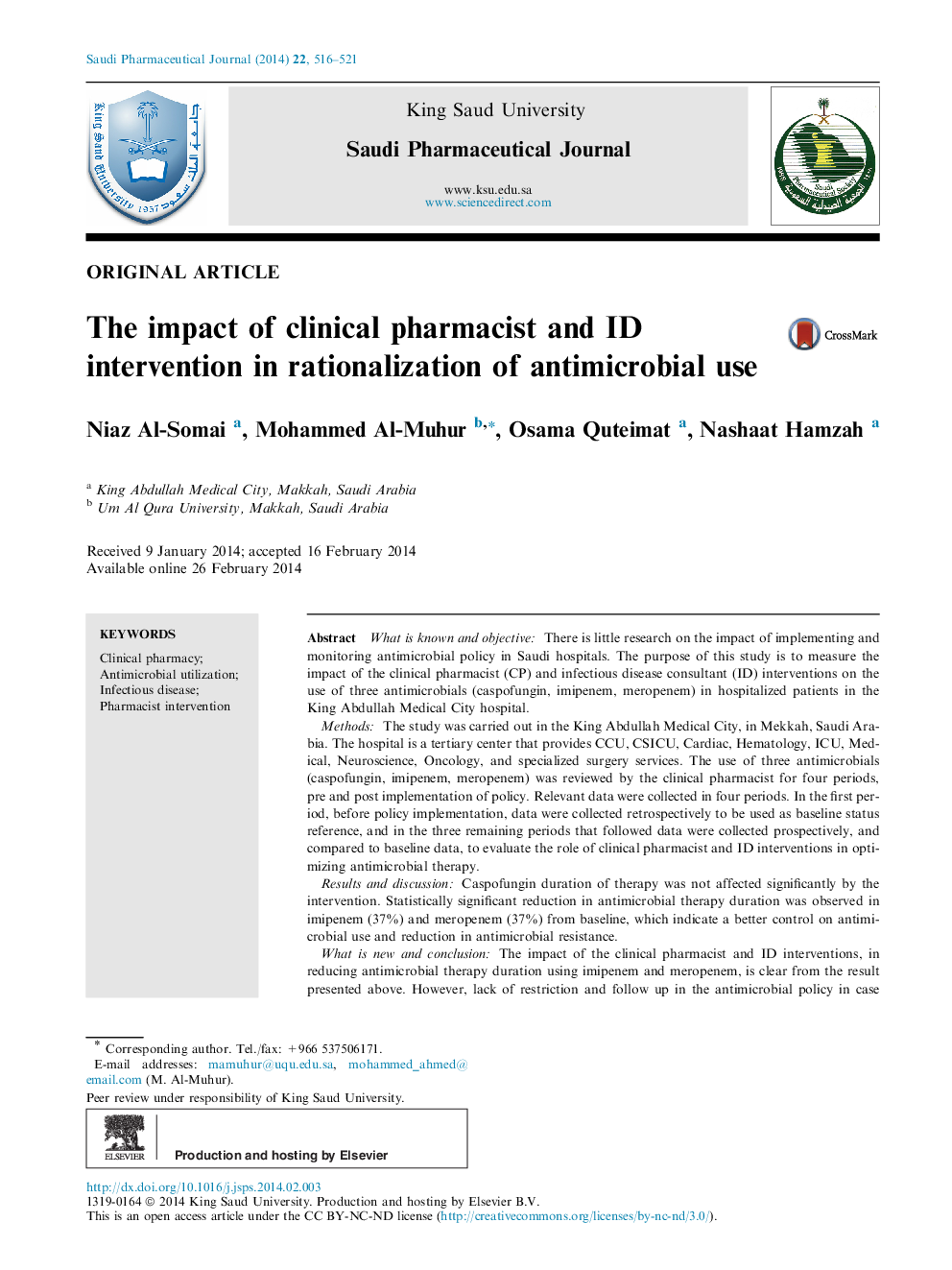| Article ID | Journal | Published Year | Pages | File Type |
|---|---|---|---|---|
| 2509532 | Saudi Pharmaceutical Journal | 2014 | 6 Pages |
What is known and objectiveThere is little research on the impact of implementing and monitoring antimicrobial policy in Saudi hospitals. The purpose of this study is to measure the impact of the clinical pharmacist (CP) and infectious disease consultant (ID) interventions on the use of three antimicrobials (caspofungin, imipenem, meropenem) in hospitalized patients in the King Abdullah Medical City hospital.MethodsThe study was carried out in the King Abdullah Medical City, in Mekkah, Saudi Arabia. The hospital is a tertiary center that provides CCU, CSICU, Cardiac, Hematology, ICU, Medical, Neuroscience, Oncology, and specialized surgery services. The use of three antimicrobials (caspofungin, imipenem, meropenem) was reviewed by the clinical pharmacist for four periods, pre and post implementation of policy. Relevant data were collected in four periods. In the first period, before policy implementation, data were collected retrospectively to be used as baseline status reference, and in the three remaining periods that followed data were collected prospectively, and compared to baseline data, to evaluate the role of clinical pharmacist and ID interventions in optimizing antimicrobial therapy.Results and discussionCaspofungin duration of therapy was not affected significantly by the intervention. Statistically significant reduction in antimicrobial therapy duration was observed in imipenem (37%) and meropenem (37%) from baseline, which indicate a better control on antimicrobial use and reduction in antimicrobial resistance.What is new and conclusionThe impact of the clinical pharmacist and ID interventions, in reducing antimicrobial therapy duration using imipenem and meropenem, is clear from the result presented above. However, lack of restriction and follow up in the antimicrobial policy in case of negative culture makes antimicrobial use uncontrollable in these cases. Establishing good and accepted policy may help reduce consumption and total cost of therapy.
